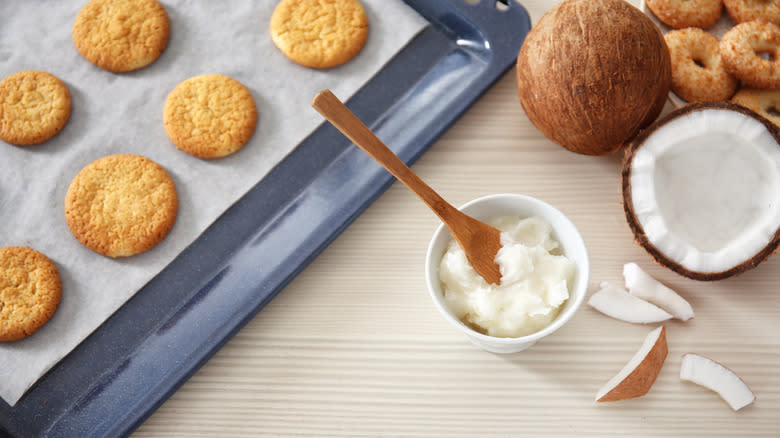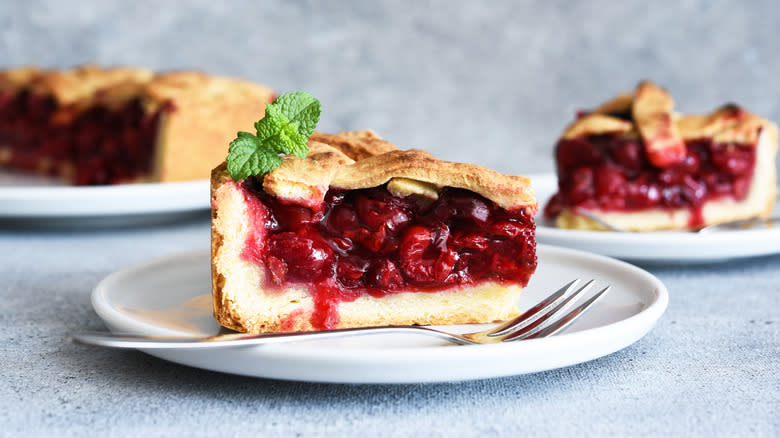For More Tasty Vegan Baked Goods, Substitute Butter For Coconut Oil

Finding vegan baked goods when you're out can be a challenge. The good news is, they are usually better when you bake them at home, especially if you use coconut oil as the butter substitute. Compared to other oils that are sometimes used in baking, such as olive, sunflower, and even flax oil, coconut oil acts the most like butter because it's thicker. Just like it, coconut oil softens when at room temperature and hardens when it's cooled. But, it also imparts much more flavor than butter does while being one of the only plant-based sources of healthful saturated fats. It's an all-around winner, and, with it, your vegan brownies, cakes, sweet breads, and cookies will be too.
When substituting coconut oil for butter in your baked goods, it's best to stick with the refined coconut oil variety over the unrefined. Unrefined coconut oil tends to have a much more prominent flavor than refined coconut oil and it could overpower your other flavors. But, before you go and add it to your recipe, because butter is 16 to 17% water, the best way to use it as a vegan butter substitute is to mix ¾ of the amount of coconut oil with the other ¼ of water or plant-based milk first. If your recipe calls for melted butter, you can easily do the same thing and just melt your coconut oil in your microwave first. The only thing it won't work quite as well in is pie crusts and flakey pastries.
Read more: 30 Types Of Cake, Explained
Use Cold Coconut Oil In Vegan Pie Crusts

Rolling out pie crust and trying to fit it into your pan is tricky. That's especially true if it's the crumbly kind and not the flaky kind, which is more than likely the only type you'll be making if you use coconut oil as the butter substitute. The thing is, flaky pie crusts and pastries rely on the separate pockets of fat found in butter. It's what creates the layers in the dough. Because coconut oil has such a low melting point, it will simply turn into liquid and coat the dough. In turn, the coconut oil gets absorbed by it, creating a more mealy dough rather than a flaky one. That's not to say it isn't possible, though.
There's nothing wrong with a mealey, crumbly, pie crust. In fact, if you're making a vegan cheesecake, a custard, or even a fruit pie, it will taste great — but sometimes you just want a flaky one. In this case, an equal substitution of vegan butter or vegetable shortening will work best. But, if coconut oil is all you have on hand you could still use it, you just have to take some precautions to make sure it remains solid and doesn't melt. This will be easier in the winter months, or if you keep your kitchen cold. You'll also want to take the time to chill your flour, bowl, and utensils in the fridge before you make the dough.
Read the original article on Tasting Table.

